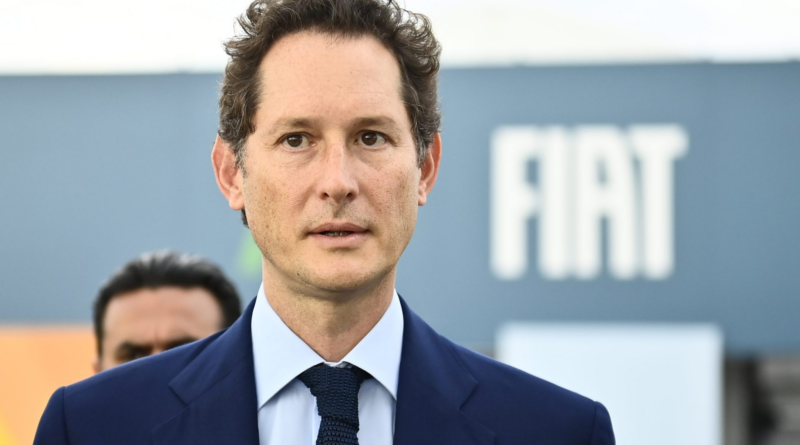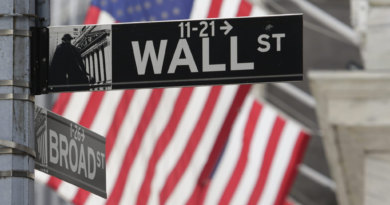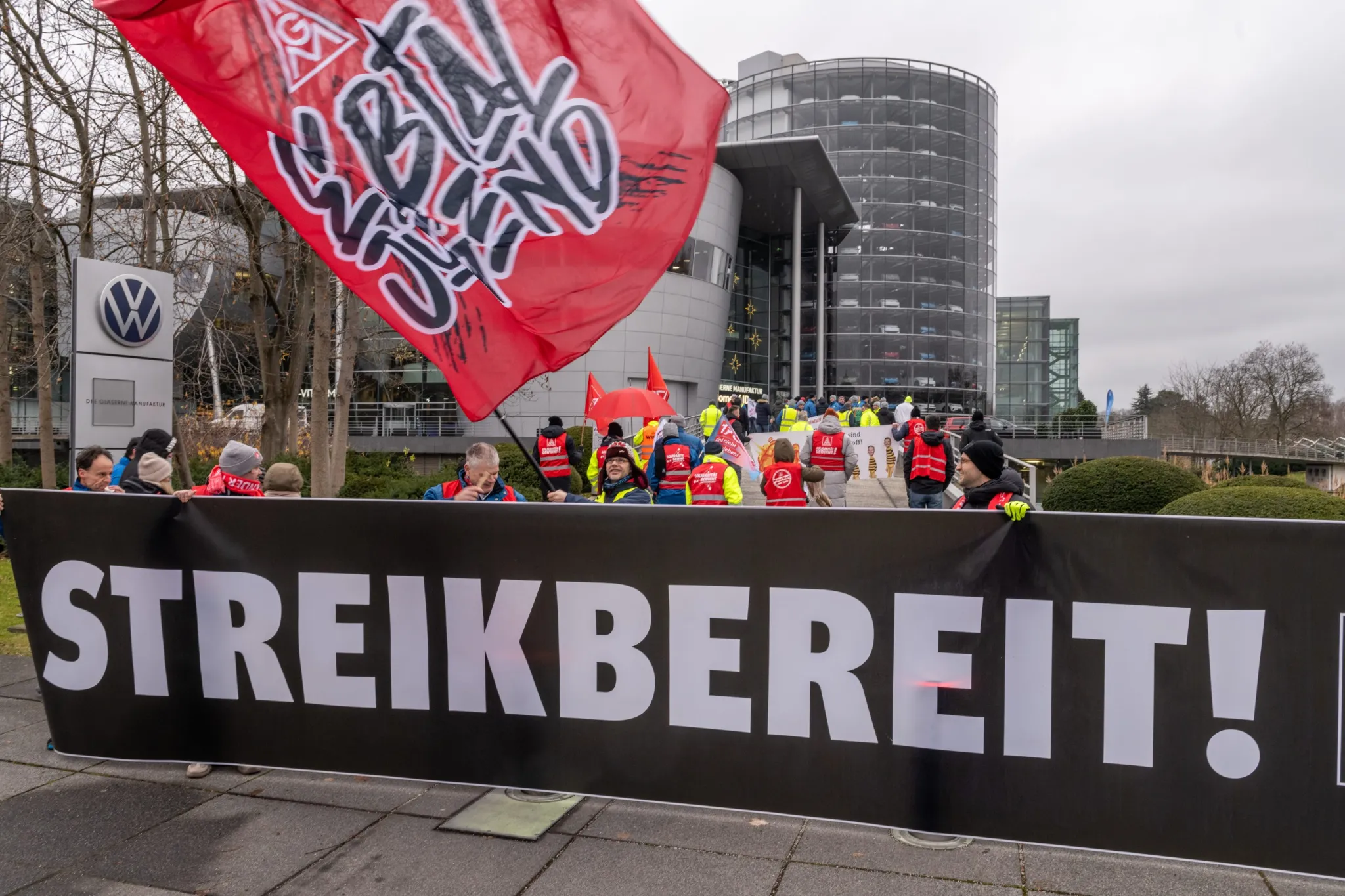Billionaire Fiat heir assumes control of Jeep and Ram parent Stellantis after embattled CEO Carlos Tavares exits
The reign of Carlos Tavares at Stellantis is over. Once hailed as the very best manager the legacy car industry had to offer, the embattled CEO resigned Sunday, taking responsibility for a rapid and stunning decline at the Jeep and Ram parent company.
Taking his place, for now, will be board chairman and Fiat heir John Elkann. In a statement about Tavares’s resignation, Stellantis said it has tasked the billionaire scion effective immediately with running a newly-formed Interim Executive Committee on top of his governance and oversight duties until a successor can be found.
“Together we will ensure the continued deployment of the company’s strategy in the long-term interests of Stellantis and all of its stakeholders,” said Elkann, the latter likely a reference not just to its workforce but its struggling U.S. dealers as well.
The carmaker said a special committee of directors will now recruit a permanent replacement for Tavares, adding the search is already “well under way”. This suggests the question of whether the CEO jumped or was pushed is largely academic as trust had already been irreparably damaged—a conclusion supported by the wording of the statement.
“In recent weeks different views have emerged, which have resulted in the board and the CEO coming to today’s decision,” said senior independent director Henri de Castries in the statement.
It’s a complete reversal of fortune for Stellantis, which has amassed ownership of over a dozen car brands including Fiat, Peugeot and Opel thanks to two transformational merger deals completed over the past decade. Tavares was the architect of the latter, merging France’s PSA with Elkann’s Fiat Chrysler Automobiles in 2019.
Just earlier this year the automaker posted record annual results, only to plunge itself into a crisis in a matter of months, culminating in an open revolt by its North American dealers. They pinned blame for the company’s recent woes firmly on the now ex-CEO.
Problems in the U.S. market are largely the reason behind Stellantis falling two rungs in the global ranking of vehicle sales, to sixth place so far this year.
Who is John Elkann?
The 48-year-old traces his lineage back to none other than great-great grandfather Giovanni Agnelli, who laid the foundation for Italy’s auto industry when he built the Fabbrica Italiana Automobili Torino, or FIAT, in 1899 in the northern city of Turin.
No modern Italian dynasty comes closer to being considered royalty than theirs. With tragedy a constant companion alongside fame, it has invited frequent comparisons with the Kennedy dynasty.
In 1997, the nephew of charismatic patriarch Gianni Agnelli died of cancer in his early thirties, leaving the family without a designated successor. Shortly thereafter Gianni’s only son perished in what appeared to be a suicide.
In 2003 came the death of Agnelli himself, with younger brother Umberto ultimately taking over the reins, only to pass little more than a year later.
Elkann, the son of Gianni’s daughter Margherita, subsequently took over the family business after having previously joined the Fiat board when he was just 22 years old. But the family’s brush with tragedy didn’t end there.
His younger brother Lapo, an eccentric playboy and fashionista, nearly died from a drug overdose in 2005. More recently, Elkann has found himself in the midst of a protracted legal battle over inheritance that pitted him squarely against his own mother.
Could Elkann remain in charge of Stellantis?
Elkann has the business chops and the experience. Elon Musk may be the longest serving CEO of a major carmaker, but Elkann has been groomed to look after Fiat ever since he was in his early twenties.
Yet while certainly conceivable, it’s unlikely.
Much like the Porsches behind Volkswagen or the Quandts that control BMW, Elkann has long eschewed the prospect of directly running the day-to-day operations of his family’s automotive empire.
Instead he has entrusted the task to a professional managerial class while he focussed on his role as CEO of Exor, the investment vehicle created to sustain and diversify the family fortune through active administration of portfolio stakes in sports clubs, newspapers and insurers, among others.
A spokesman for the company declined to comment to Fortune beyond what was in the company press release, simply saying “stay tuned” for further details to come, including the precise composition of the Interim Executive Committee.
Tavares was Elkann’s second transformational CEO after Sergio Marchionne, who seized on Chrysler’s difficulties to acquire a controlling stake in the aftermath of its 2008 bankruptcy. In 2014, the known workaholic and heavy smoker acquired full ownership, creating Fiat Chrysler Automobiles. His sudden death four years later from complications of shoulder surgery accelerated the search for a partner that became Tavares’ PSA.
Why did Tavares have to go?
Stellantis shocked the market in September after warning it would move forward plans to liquidate a bloated U.S. inventory of vehicles at bargain-basement prices if need be. The ensuing reduction of its forecasted profit margin revealed bigger problems than previously believed.
Earlier that month dealers blasted Tavares for a strategy they argued prioritized short-term success at the cost of longer term problems, just so he could inflate 2023 results and pocket nearly $40 million in compensation—more than any other peer at a legacy carmaker.
This time however the company was quick to point out Tavares would not leave an even bigger mess behind for Elkann to clean up. Stellantis affirmed on Monday it remained on track to meet its revised full-year guidance.
Not that this seemed to buoy the confidence of investors: shares in the carmaker fell over 8% in European trading and are set to open sharply lower when the bell is rung on New York’s Big Board.
Elkann nonetheless extended respect to Tavares for rescuing first the French carmaker behind Peugeot and Citroen before nursing Opel back to health after a generation of mismanagement under previous owner General Motors.
“Our thanks go to Carlos for his years of dedicated service and the role he has played in the creation of Stellantis,” Elkann said.


 This year in odd news: The weirdest headlines from the Houston area in 2022 – KPRC Click2Houston
This year in odd news: The weirdest headlines from the Houston area in 2022 – KPRC Click2Houston

